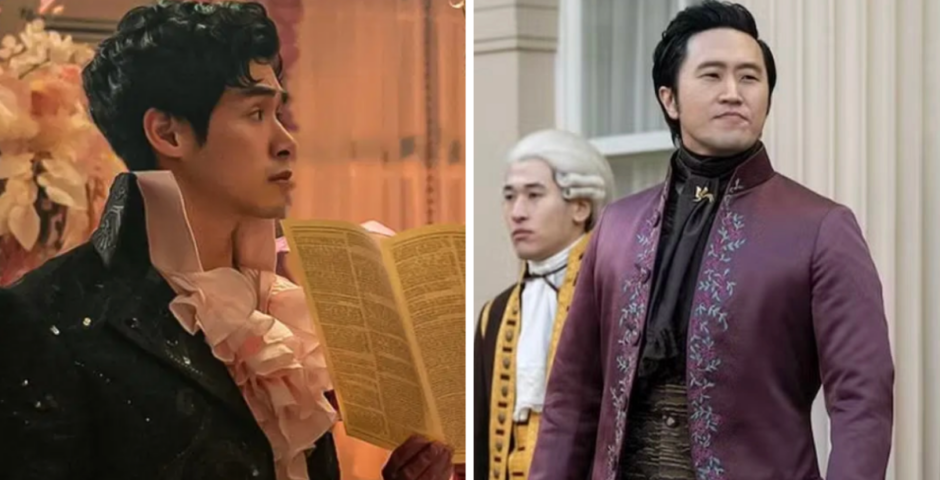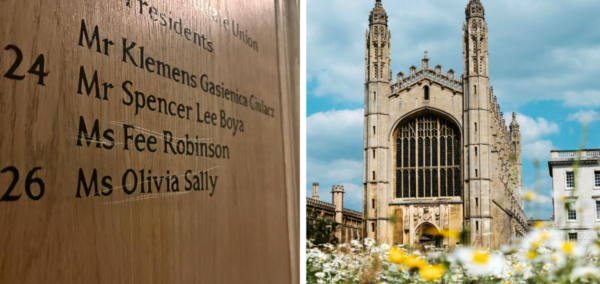
‘Having Camembert in your uni fridge isn’t normal’: Experiences of classism at Bristol Uni
An evaluation of classism at Bristol University
Whether it’s the epidemic of quarter-zip jumpers and Apple Macs, or caviar in the fridge, many would agree that there is an air of privilege and wealth amongst an inordinate percentage of UoB students. We spoke to Bristol students to understand their experiences of classism at the University of Bristol.
For those from working-class or underprivileged backgrounds, this is a tough atmosphere to adjust to. According to the Times and Sunday Times’ UK University Rankings 2025, 24.6 per cent of UoB students attended private school (compared to the 6.5 per cent of schoolchildren who attended private schools in January 2024).
Our survey included 111 UoB students who responded anonymously.
This begs the question as to whether Bristol University is an inherently classist institution and raises concerns in relation to the university’s response to this issue.
Overheard at UoB

Exclusive sent to The Bristol Tab
The Instagram account OverheardatUoB, run by students who post outrageous and anonymous quotes overheard around campus and other student areas, has a whopping 20.1k followers.
A personal favourite that I believe sums up this issue quite succinctly is, “There are no seats in any of the libraries… should we try working in the Ivy?” Or: “I can’t tell what’s worse – my ski chalet burning down or the great fire of Hiatt”.
Whilst entertaining, this provides a clear insight into the levels of affluence that certain students display. According to a survey conducted by The Bristol Tab, 74.5 per cent of students who responded feel they are excluded and othered because of their class or background, many describing the hardships of struggling to earn a living whilst attending university.
Ski trips
This is a harsh contrast with wealthier students who enjoy frivolous spending and access to all forms of extravagant extra-curricular and social activity (ski trips and days at the races being the most obvious examples), many of whom receive financial support from parents – a luxury that many do not benefit from.
This large cohort of privately educated students (many from affluent areas of London) forms an in-crowd and, intentionally or not, alienates students who attended state schools.
One student aptly told us: “I had no idea it was normal for people to go skiing over Christmas until I got to Bristol.” Another said: “I’ve been met with looks of shock or confusion when I mention things like i’ve never been skiing, almost as if it’s a ‘right of passage’ that everyone has done.”
For many students the thought of going on religiously annual ski trip would not have crossed their minds growing up.
Private school

With the disproportionate amount of privately educated students at Bristol, it’s no wonder the uni has a 93 per cent club for state school students.
On respondent told The Bristol Tab: “I think it’s just the subtle feeling of feeling like you don’t belong. You didn’t fit into conversations. You can’t join in with activities. There’s a slight judgement every time.”
Certain students have described bullying and snobbery from these groups, particularly in first year when specific halls of residence are made up almost entirely of former private school kids. In 2019 the residents of Churchill were 59 per cent privately educated according to an FOI request. One student said: “In Churchill there were so many posh boarding schools people.”
Adding: “The uni need to not clump together all the entitled and ignorant poshos who think they can do anything to anyone and can be (and are) always gonna be protected by each other.”
Accents
Many respondents to our survey expressed concerns relating to accent prejudice, one describing how they had their “accent mocked and colloquial grammar/slang corrected”, also revealing the superiority complex many private school students seem to maintain.
This generally seems to be an issue for students with distinctive (often northern) regional accents which contrast greatly with the standard southern and RP (received pronunciation) accents, exacerbating this feeling of exclusion. Another respondent simply said “had the front door shut on me at a house party cause of my northern accent.”
Additionally, a Welsh student remarked: “I’ve been perceived as stupid or underestimated academically because of that accent.”
Cosplaying as working class
Another core concern for the students we spoke to was students who “‘cosplay as poor.”
These social chameleons hide in plain sight, shopping exclusively at charity shops, talk like they’re from south London (when really, they’re from Surrey) and then will casually drop into conversation that their dad is an investment banker.
The other side
However, some respondents who were privately educated reported being subject to “jokes and snarky comments because of their privilege. Adding: “there’s a large number of people who resent those they view as more privileged than them. They’re typically the same people who get annoyed when you make comments back!”
While this respondent may want to google “punching up” vs “punching down”, they do raise a interesting point about picking on people’s differences. No one should be made to feel unwelcome.
Student loans
Student loans are another core area of contention we found in our research, with one extreme of: “I have to work a lot to be able to afford rent/food,” to the other: “What’s a maintenance loan?”
Bristol appears to have an exceeding large population of students without loans. Even with this, the high cost of living in Bristol leads to many students seeing a job as a necessity. One student recalled an experience of a friend jokingly saying “imagine having a student loan.”
With another saying: “I’ve heard complaints about bursaries in place for students from low socio-economic backgrounds.”
This also comes with the shaming of cheaper university accommodations. With a university halls student recalling being mocked with, “oh so you’re poor then? you live in poverty halls? hahahaha.”
Social capital
Sadly, when it comes to the more niche courses that the university offers, it’s also apparent that state school students feel disadvantaged; students in languages, humanities and arts courses seem to suffer the most due to a lack of funding and resources in many schools and sixth forms across the country.
Learning musical instruments, latin and literary classics is much harder to come by at state schools. With one student explaining: “Many of my peers have a background is classical studies.” Adding: “they weren’t taught in school and my parents didn’t have the knowledge.”
International student stereotypes
Akin to classism is the view that international students are anti-social and don’t “integrate”. This misguided and homogenising stereotypes has real consequences to students.
One respondent said: “The stereotype that international students don’t integrate is false. It’s hard to integrate when you’re ignored or spoken to like you’re an alien.
“People are not as educated as they seem. Was asked by my white flatmate if I had shopping centres in Colombia? Hello…”
Ignorance to money
A general ignorance of money and lack of understanding or compassion for students from underprivileged milieux seems to have cemented a culture of classism at Bristol Uni; an overwhelming 88.1 per cent of survey respondents agreed.
One student said: “I’ve had people actively make fun of me for working a part time job during studies.” A seemingly common experience, with six others also saying they had received negative comments about needing to work at uni.
The way rent functions with student housing in Bristol was also raised, with students who rely on loans struggling to produce deposits and advances before their payments come through.
“I found myself shocked to source nearly £2000 for the first quarter without my maintenance loan to support me. However many of my housemates didn’t face this issue and were able to pay it easily. ”
That’s not to say that all private school students are horrible snobs, but there are enough bad apples to tarnish the orchard.
Whilst it can be said that the university does do its fair share to attract students from a range of backgrounds (exemplified by contextual offers and bursary schemes), it clearly does not do enough to ensure their integration into university life and access to an equal scholastic experience.





















